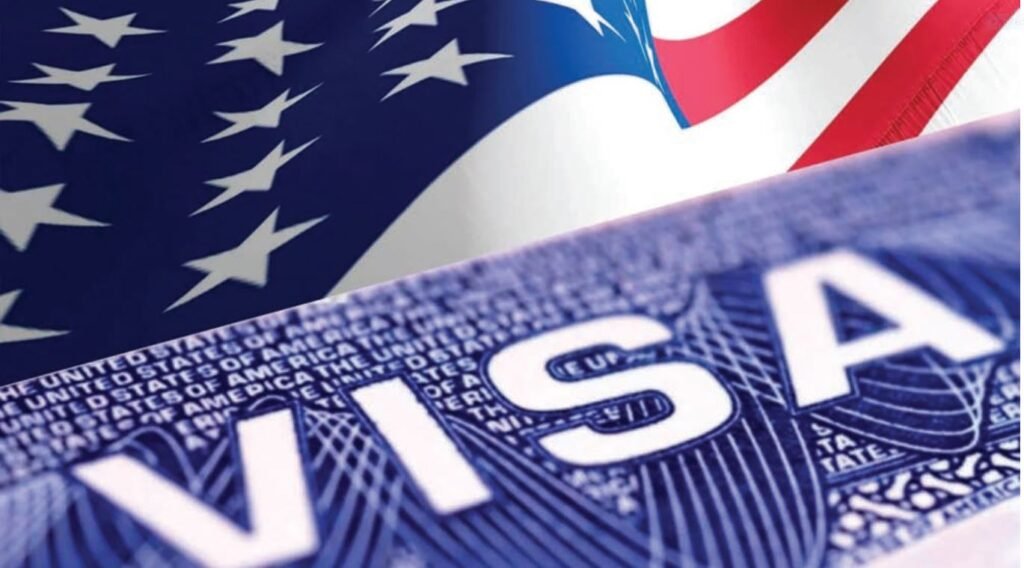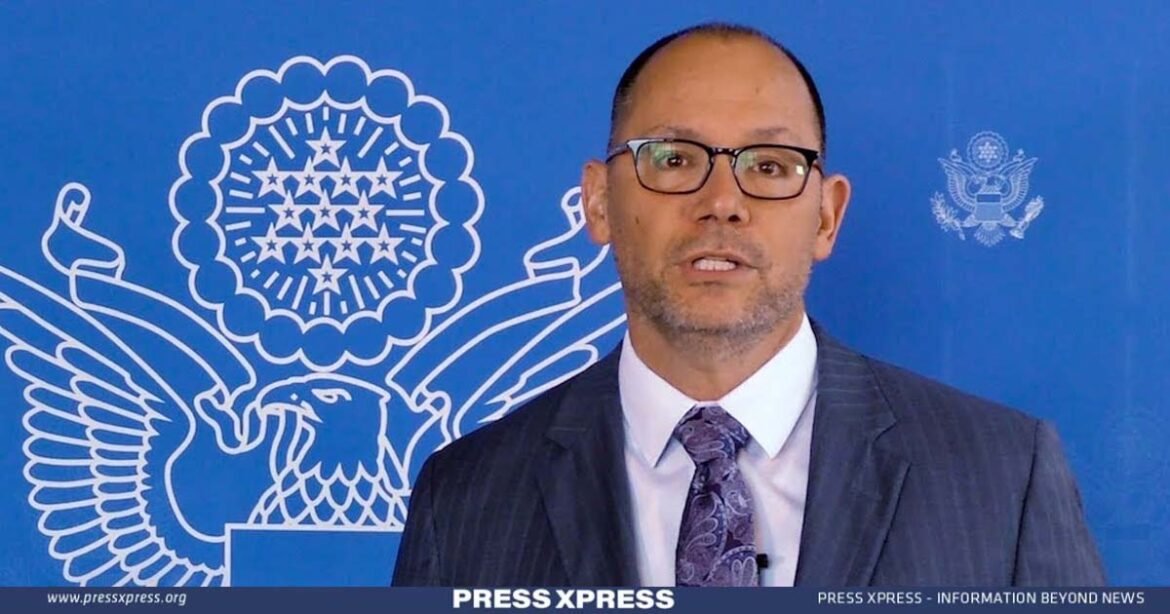The United States’ decision to potentially include media figures in its visa ban, ostensibly to ensure fair elections has prompted questions about the compatibility of such restrictions with democratic values and the fundamental principles of free speech
The United States recently imposed a visa ban on individuals deemed to obstruct the forthcoming parliamentary elections in Bangladesh. On September 24, US Ambassador to Dhaka, Peter De Haas, added an intriguing twist to this ban by suggesting that it could encompass media figures.
This development follows US Secretary of State Anthony Blinken’s announcement of a revised visa policy on May 24, aimed at promoting free, fair, and peaceful elections in Bangladesh. Under this policy, actions hindering the democratic electoral process, such as vote rigging, voter intimidation, disruption of peaceful gatherings, interference with political parties, voters, civil society, and media, could all trigger visa restrictions.
You can also read: Who will be affected by the US’s visa curbs?
The apparent contradiction between the visa policy announced in May and Peter Haas’s statement in September raises significant questions. This paradoxical stance within the visa policy invites further scrutiny and debate.
Role of Media under threat
An independent, transparent, and responsible media is not just a cornerstone of economic development but also an essential pillar of a thriving democratic society. In the aftermath of the coronavirus pandemic and the conflict in Ukraine, the media’s significance in both global and national economic recovery has been undeniable. Our media has been instrumental in keeping citizens informed about the government’s various initiatives and policies aimed at addressing these critical challenges.
Mass media, in this context, serves as a vital conduit for disseminating innovative ideas and plans to a global audience. Moreover, it plays a pivotal role in holding the government accountable for its actions and decisions. By offering impartial information, the media contributes to greater transparency, thus equipping citizens with a deeper understanding of economic issues and aiding in the process of revitalizing the country’s economy.
Rationale Behind the Visa Policy
US Ambassador to Dhaka, Peter Haas, has explained that the United States has instituted its visa policy with the primary objective of ensuring free, fair, and unbiased elections. When asked about this policy, he emphasized its impartial nature, stating,
“We have implemented this visa policy without favoritism, devoid of any bias. It applies equally to individuals irrespective of their affiliation with the ruling party, the opposition, or their stance on the government.”
Media Within the US Visa Policy: An Inconsistent Position
As previously stated, the United States has indicated that it may impose visa bans on individuals involved in election rigging, voter intimidation, and the suppression of civil and media freedoms. However, a pressing question arises: if the media itself is subjected to such bans, how can the principles of free speech and truth-telling be upheld? Paradoxically, this ban appears to undermine the very ideals of freedom of expression that the United States advocates globally, raising concerns about its compatibility with democratic values.
Furthermore, there remain certain ambiguities within Peter Haas’s statement. It remains unclear whether this ban applies to individual media professionals or media organizations as a whole. Additionally, it is essential to discern whether Haas’s statement represents an official policy declaration or merely constitutes his personal commentary on the matter.

Outrage from Journalist Leaders Over Media Inclusion in US Visa Policy
Leaders within the Bangladeshi media community have expressed strong indignation in response to Peter Haas’s statement that the media in Bangladesh could potentially face restrictions under the US visa policy. They argue that such a move would foster an environment of apprehension within the media landscape, which is far from desirable, emphasizing the media’s commitment to maintaining an independent editorial stance.
Iqbal Sobhan Chowdhury, Editor of Bangladesh Observer, remarked, “The fundamental question here is that the media has always acted as a voice against injustice, championing human rights, and highlighting issues of misrule and injustice. It stands for justice and human rights. Imposing restrictions would instill a climate of fear. Such an atmosphere would impede independent journalism.” He also stressed that working under a climate of fear is neither favorable for journalists nor those advocating restrictions.
Shyamal Dutta, President of Jatiya Press Club and Editor of Dainik Bhorer Kagoj, expressed bewilderment, saying, “I fail to comprehend how the media could undermine democracy within a nation. The comments made by US Ambassador Peter Haas on a television channel regarding the media are unclear. Individuals who champion the cause of a free media and democracy should not discuss the media in such a manner or make decisions of this nature.” He further added, “Should the United States proceed with such measures against the media, it would be a regrettable interference in independent journalism.”
Deep Azad, Secretary-General of the Bangladesh Federal Union of Journalists, noted, “During US elections, American media often align with the interests of their own parties or candidates, and this is part of their editorial policy. If any media entity in Bangladesh operates with an agenda aimed at undermining or disrupting democracy, we do not consider it as true media. Instead, we view it as a mouthpiece for a particular organization or individual.”
Aktar Hossain, General Secretary of the Dhaka Journalist Union, emphasized, “We firmly believe that this amounts to direct interference with freedom of the press. Bangladeshi journalists are staunch proponents of independent journalism. Statements like those made by the US ambassador have the potential to impede our journalistic endeavors. Such bans or interventions that infringe upon the principles of free expression will only sow fear among journalists.”
The intersection of media, democracy, and visa policies has ignited a contentious discourse. The United States’ decision to potentially include media figures in its visa ban, ostensibly to ensure fair elections has prompted questions about the compatibility of such restrictions with democratic values and the fundamental principles of free speech.
While the United States seeks to promote transparent and impartial elections, the move raises concerns about inhibiting the very institutions that safeguard democracy and hold governments accountable. As journalist leaders voice their concerns and assert the importance of independent journalism, the discussion surrounding this visa policy continues, highlighting the delicate balance between safeguarding democracy and upholding the principles of media freedom and accountability.


